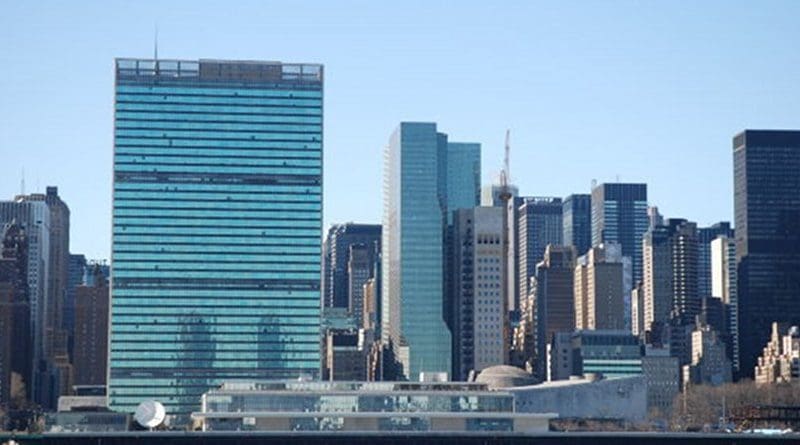Obama At UN To Address Unrest Over Video, Iran Nuclear Issue
By VOA
By Dan Robinson
U.S. President Barack Obama addresses the United Nations General Assembly on Tuesday. He is expected to speak about demonstrations across the Middle East as well as Iran’s nuclear ambitions.
Addressing the U.N. General Assembly last year, Obama spoke in sweeping terms about what he called the pursuit of peace in an imperfect world.
That speech covered the winding down of the U.S. combat role in Afghanistan and its end in Iraq, Arab Spring upheavals and the birth of new nations such as South Sudan. He also voiced frustration with the Israel-Palestinian peace process.
This year, Obama will speak again about change in the Middle East, but also will address the violent demonstrations in the Muslim world, sparked by an anti-Islam video produced by private individuals in the United States.
White House Press Secretary Jay Carney says Obama will send a strong message about the unacceptability of violence and U.S. determination to continue playing a leading role.
“Violence is never acceptable, a message that has been echoed by the leaders he has personally reached out to in places like Egypt, Libya and Yemen. He will also send a clear message that the United States will never retreat from the world. The United States will bring justice to those who harm Americans, and the United States will stand strongly for our democratic values abroad,” said Carney.
Ahead of Tuesday’s speech, the White House faced some tough questions about Obama’s remarks in an interview on CBS’ 60 Minutes program. The president said he knew there would be “bumps on the road” of political transformation in the Mideast.
Republican presidential nominee Mitt Romney jumped on that. He said he couldn’t imagine calling the killing of U.S. Ambassador to Libya Chris Stevens and three other Americans a “bump in the road.”
In the 60 Minutes interview, Obama said it was “absolutely the right thing for us to do to align ourselves with democracy, universal rights and the notion that people have to be able to participate in their own governance.”
The White House also faced questions about President Obama’s schedule in New York Obama’s decision not to meet with Israeli Prime Minister Benjamin Netanyahu here continues to draw fire from the Romney campaign and key Republican lawmakers.
The Israeli leader is expected, in his General Assembly speech Thursday, to warn that a nuclear-armed Iran would be a global threat.
Although Obama met separately with 13 foreign leaders last year, the White House has announced no bilateral meetings in advance.
Jay Carney said Obama had intensive consultations in recent weeks with a range of foreign leaders.
“His consultations and meetings with foreign leaders will continue, going forward, with the same kind of intensity that we have seen of late, as dictated and required by events in the world and by this president’s commitment to U.S. national security interests,” he said.
Secretary of State Hillary Clinton, not Obama, will meet with Netanyahu.
Press Secretary Carney said the General Assembly session presents another opportunity for Obama to underscore his commitment to preventing Iran from obtaining a nuclear weapon.

